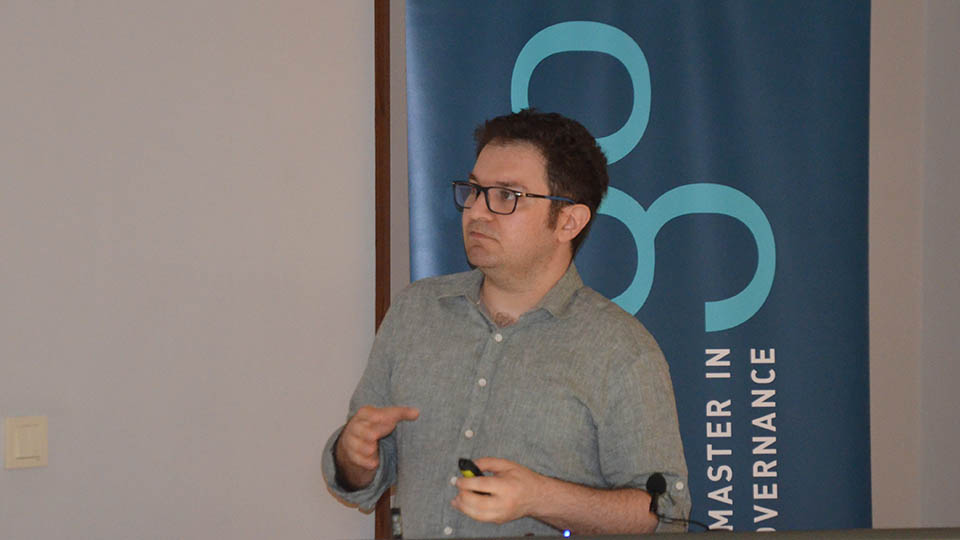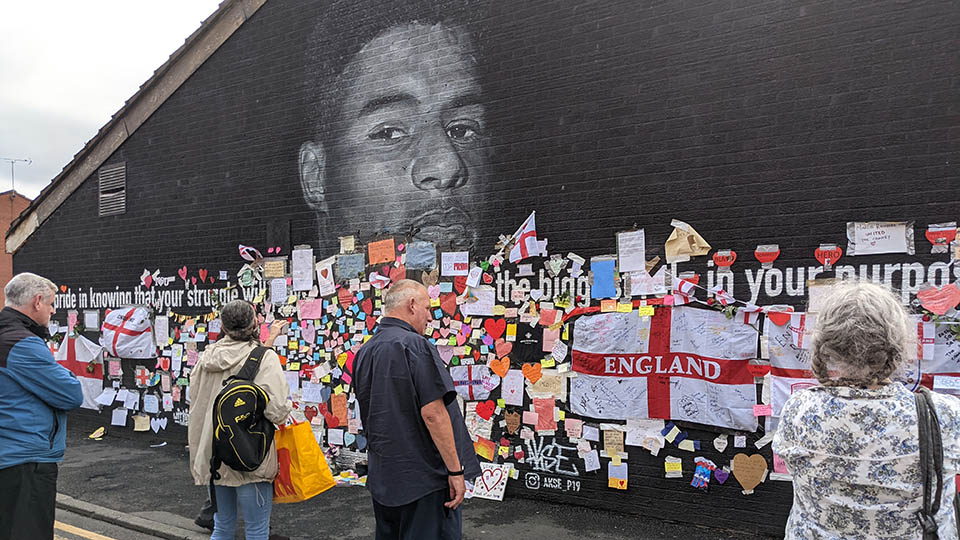Sport and societal change were at the heart of a recent discussion featuring the University's Dr Daghan Irak and some of Europe's leading sports executives in Istanbul.
Dr Irak, who lectures in Sports Journalism and who has written extensively about the role of football in the politics of his native Turkey, spoke at a conference hosted by MESGO, the Executive Master in Global Sport Governance.
"The UK actually has a lot of similar problems to Turkey regarding income inequality, gender and race," says Dr Irak, who has also commentated on women's football at the Olympics.
"These issues cannot be solved by sport, but sport can be a catalyst for more progressive, inclusive policies that begin to tackle and maybe resolve them."
 Dr Daghan Irak
Dr Daghan Irak MESGO covers a multitude of aspects of sports governance, including financial, legal and political, but with elite sport spending generating billions in finance, Dr Irak was keen to bring sociological issues to the attendees' attention.
"It was nurturing to find ways to communicate with them, to convey my position and give them some clues on how they can implement some of the ideas that we produce as sports sociologists into their field.
"If you have a problem in a sports arena, it is unlikely that the root of the problem is from the world of sport. The problem may be amplified by sport, because it is a very intense environment with rivalries and physical confrontation."
As well as issues like racism in stadia or on social media being discussed, the violence that occurred at the EURO 2020 final at Wembley and this year's Champions League Final in Paris were also discussed.
The role of high-profile athletes and media figures was also looked at as an area where change for the better can be initiated, but as Dr Irak points out, the kind of organisations at MESGO would often prefer their stars to remain quiet for fear of damaging their brand.
 The mural of Marcus Rashford in Manchester was defaced following England's defeat at Euro 2020 - but was quickly covered in supportive and anti-racist messages.
The mural of Marcus Rashford in Manchester was defaced following England's defeat at Euro 2020 - but was quickly covered in supportive and anti-racist messages. "People like Marcus Rashford and Andy Murray are willing to discuss gender, class and social issues and people should listen them. They are intelligent people, and they have experience of these issues.
"Alex Scott, who was a great right-back, took a lot of heat when starting in the media but she has built a great career. She had to take the hard road to media success amid undeserved criticism on her ethnic origins, accent and gender. It's great to see people like her using a platform, since they are familiar with discrimination on and off the field and can bring that perspective into their commentary when needed."
"But we need to be aware of is that clubs and organisations as commercial entities that tend to deprive sports people of these skills. They start their careers early, they don't get a quality education and some of them develop these skills on their own or via a mentor. They would disrupt the system and the sports industry would be less profitable.
"Unless you build a more inclusive and democratic sports environment, there are some problems that will not go away. It is counter-productive for executives to ignore them, and I think it was useful for everyone there to hear this from a sociologist.
"It is great that an executive Master's programme has a sociological standpoint directed towards high positions that need to hear this. I was happy to tell them about not just Turkey, but all of the sports business as it is a global entity."
Wembley photo by Jaanus Jagomägi on Unsplash






